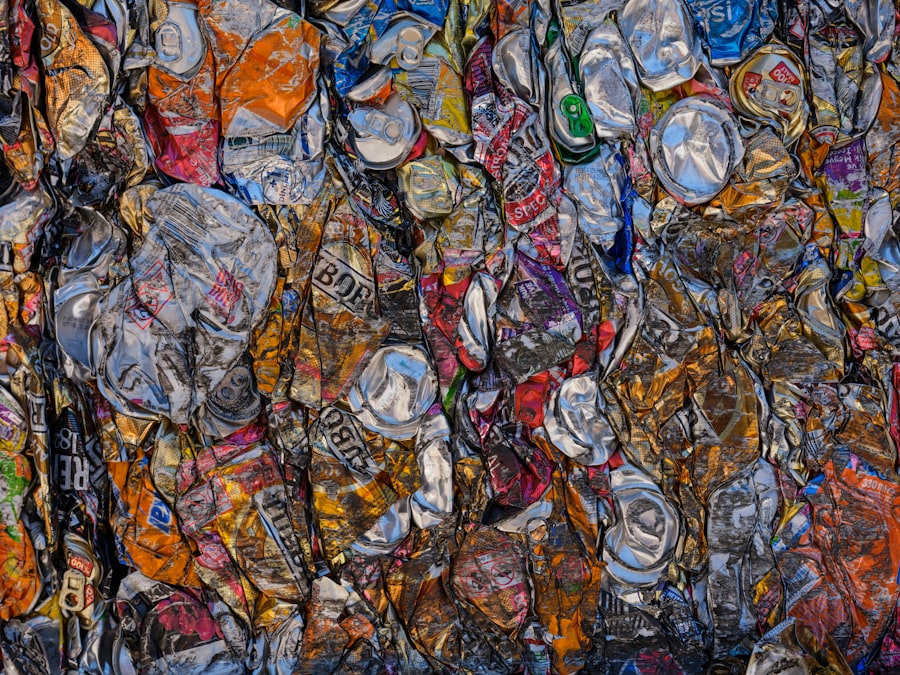The concept of petrodollar recycling emerged in the early 1970s, a pivotal time when the global economy was undergoing significant transformations. You may recall that this period was marked by the collapse of the Bretton Woods system, which had previously established fixed exchange rates tied to the U.S. dollar. As oil prices surged due to the 1973 oil crisis, the wealth generated by oil exports began to flow into the coffers of oil-producing nations, particularly those in the Middle East. This influx of capital created a new dynamic in international finance, as these countries sought ways to reinvest their newfound wealth. As you delve deeper into the origins of petrodollar recycling, it becomes clear that the United States played a crucial role in shaping this phenomenon. In exchange for ensuring the security of oil-rich nations, particularly Saudi Arabia, the U.S. encouraged these countries to price their oil in dollars. This arrangement not only solidified the dollar’s status as the world’s primary reserve currency but also established a cycle where oil revenues were reinvested in U.S. assets, such as Treasury bonds and real estate. Thus, petrodollar recycling became a mechanism through which oil-exporting countries could maintain liquidity while simultaneously supporting the U.S. economy.
Key Takeaways
- Petrodollar recycling originated in the 1970s when oil-producing countries began investing their surplus oil revenues in Western financial markets.
- OPEC plays a crucial role in petrodollar recycling by coordinating oil production and pricing, which directly impacts the flow of petrodollars.
- Petrodollar recycling has a significant impact on global currency markets, as the influx of petrodollars can lead to currency appreciation and affect exchange rates.
- The relationship between petrodollar recycling and sovereign wealth funds is strong, as oil-producing countries use these funds to invest in foreign assets and diversify their portfolios.
- Petrodollar recycling influences international trade by affecting the balance of payments and trade deficits of oil-importing countries.
The Role of OPEC in Petrodollar Recycling
The Organization of the Petroleum Exporting Countries (OPEC) has been instrumental in facilitating petrodollar recycling since its inception. As a collective of major oil-producing nations, OPEC has significant influence over global oil prices and production levels. You might find it interesting that OPEC’s decisions directly impact the flow of petrodollars, as higher oil prices lead to increased revenues for member countries.
This revenue is then often recycled back into the global economy, primarily through investments in U.S. financial markets. OPEC’s role extends beyond mere price-setting; it also acts as a stabilizing force in the global oil market.
By coordinating production cuts or increases, OPEC can influence oil prices, which in turn affects the volume of petrodollars available for recycling. For instance, during times of economic uncertainty or geopolitical tensions, OPEC’s ability to manage supply can help stabilize prices and ensure that member countries continue to generate substantial revenues. This dynamic creates a feedback loop where stable oil prices lead to consistent petrodollar recycling, further entrenching the dollar’s dominance in international trade.
The Impact of Petrodollar Recycling on Global Currency Markets

Petrodollar recycling has profound implications for global currency markets, particularly concerning the U.S. dollar’s status as the world’s primary reserve currency. As you explore this topic, you’ll notice that the recycling process creates a constant demand for dollars, as countries need to hold reserves in this currency to facilitate oil transactions.
This demand helps maintain the dollar’s value and stability, making it an attractive option for investors and central banks alike. Moreover, petrodollar recycling can lead to fluctuations in exchange rates for other currencies. When oil-exporting nations reinvest their petrodollars into U.S.
assets, it can strengthen the dollar against other currencies, impacting trade balances and economic conditions worldwide. For instance, if the dollar appreciates significantly due to increased petrodollar inflows, it may make U.
exports more expensive for foreign buyers while simultaneously making imports cheaper for American consumers.
This dynamic can create trade imbalances and affect economic growth in various countries.
The Relationship Between Petrodollar Recycling and Sovereign Wealth Funds
| Key Metrics | Description |
|---|---|
| Petrodollar Recycling | The process of oil-exporting countries investing their earnings from oil exports into foreign assets or sovereign wealth funds. |
| Sovereign Wealth Funds | State-owned investment funds that are used to invest in various financial assets such as stocks, bonds, real estate, and other investment vehicles. |
| Oil Prices | The fluctuation in the price of oil can impact the amount of petrodollars available for recycling into sovereign wealth funds. |
| Investment Returns | The returns generated by sovereign wealth funds from their investments can contribute to the overall wealth and economic stability of the oil-exporting countries. |
Sovereign wealth funds (SWFs) have become a prominent feature of the global financial landscape, and their relationship with petrodollar recycling is particularly noteworthy. As you consider this connection, it’s essential to recognize that many oil-rich nations have established SWFs to manage their surplus revenues effectively. These funds serve as investment vehicles for governments to diversify their income sources and ensure long-term financial stability.
You may find it fascinating that SWFs often invest heavily in foreign assets, including stocks, bonds, and real estate. This investment strategy not only helps these countries mitigate risks associated with fluctuating oil prices but also reinforces the cycle of petrodollar recycling. When SWFs invest in U.S.
markets or other global assets, they contribute to the demand for dollars and further entrench the dollar’s position as a reserve currency. Additionally, these investments can have significant implications for global financial markets, as SWFs often possess substantial capital that can influence asset prices and market trends.
How Petrodollar Recycling Influences International Trade
Petrodollar recycling plays a critical role in shaping international trade dynamics. As you examine this influence, you’ll notice that countries with substantial petrodollar reserves often have greater leverage in trade negotiations and partnerships. The ability to invest surplus revenues into foreign economies allows these nations to forge strategic alliances and secure favorable trade agreements.
Furthermore, petrodollar recycling can lead to increased liquidity in global markets, facilitating trade across various sectors.
This growth can create new markets for goods and services, ultimately benefiting both exporting and importing nations.
However, this dynamic can also lead to dependency on oil revenues for some economies, making them vulnerable to fluctuations in oil prices and demand.
The Geopolitical Implications of Petrodollar Recycling

The geopolitical landscape is significantly influenced by petrodollar recycling, as it intertwines economic interests with international relations. You may observe that countries with substantial petrodollar reserves often wield considerable power on the global stage due to their financial resources. This power can manifest in various ways, from influencing energy policies to shaping diplomatic relations.
Moreover, petrodollar recycling can exacerbate tensions between nations as they vie for control over energy resources and markets. For instance, countries that rely heavily on oil exports may find themselves at odds with those seeking to transition to renewable energy sources. This competition can lead to geopolitical conflicts and instability in regions rich in natural resources.
As you consider these implications, it’s essential to recognize that petrodollar recycling is not merely an economic phenomenon; it is deeply intertwined with global politics and power dynamics.
The Effect of Petrodollar Recycling on Developing Economies
The effects of petrodollar recycling extend beyond major economies; they also significantly impact developing nations. As you explore this topic, you’ll find that many developing countries rely on oil exports as a primary source of revenue. When these nations experience a surge in petrodollars due to rising oil prices, they may invest in infrastructure projects or social programs aimed at improving living standards.
However, this reliance on petrodollars can also create challenges for developing economies. Fluctuations in oil prices can lead to economic instability, making it difficult for these countries to plan for the future effectively. Additionally, if petrodollars are not managed wisely or invested strategically, there is a risk of creating an economy overly dependent on oil revenues without diversifying into other sectors.
This dependency can hinder long-term growth and development prospects.
The Connection Between Petrodollar Recycling and Global Inflation
Petrodollar recycling has a complex relationship with global inflation rates. As you analyze this connection, you’ll notice that increased demand for oil can lead to higher prices at the pump and throughout various sectors of the economy. When oil-exporting nations recycle their petrodollars into global markets, it can create upward pressure on prices due to increased liquidity and demand for goods and services.
Conversely, if oil prices decline significantly and petrodollars diminish, it can lead to deflationary pressures in economies reliant on oil revenues. This dynamic creates a delicate balance where fluctuations in oil prices can have ripple effects throughout the global economy. As you consider these implications, it’s essential to recognize that managing inflation in an interconnected world requires careful attention to the role of petrodollars and their impact on supply chains and consumer behavior.
The Future of Petrodollar Recycling in a Changing Energy Landscape
As you look toward the future of petrodollar recycling, it’s essential to consider how shifts in energy production and consumption may reshape this phenomenon. With growing concerns about climate change and a global push toward renewable energy sources, you may wonder how these changes will affect the demand for oil and subsequently impact petrodollar recycling. The transition to renewable energy could lead to a decline in oil consumption over time, potentially reducing the flow of petrodollars into global markets.
However, this shift may also create new opportunities for investment in green technologies and sustainable practices. As you contemplate these possibilities, it’s crucial to recognize that while petrodollar recycling may evolve, its underlying principles will likely remain relevant as long as oil continues to play a significant role in the global economy.
The Environmental Consequences of Petrodollar Recycling
The environmental consequences of petrodollar recycling cannot be overlooked as you consider its broader implications. The continued reliance on fossil fuels contributes to climate change and environmental degradation, raising questions about sustainability and responsible resource management. You may find it concerning that while petrodollars fuel economic growth in many regions, they also perpetuate practices that harm ecosystems and contribute to global warming.
As awareness of environmental issues grows, there is increasing pressure on governments and corporations to transition toward more sustainable practices. This shift could influence how petrodollars are recycled and invested in future projects. You might envision a scenario where investments are directed toward renewable energy initiatives or environmentally friendly technologies rather than traditional fossil fuel industries.
Strategies for Managing the Effects of Petrodollar Recycling on the Global Economy
To effectively manage the effects of petrodollar recycling on the global economy, several strategies can be employed by policymakers and financial institutions alike. As you explore these strategies, consider how diversification plays a crucial role in mitigating risks associated with fluctuating oil prices. Encouraging countries reliant on oil revenues to invest in various sectors can help create more resilient economies less susceptible to external shocks.
Additionally, fostering international cooperation among nations can enhance stability within global markets influenced by petrodollars. Collaborative efforts aimed at addressing climate change and promoting sustainable practices can help ensure that future investments align with long-term environmental goals while still supporting economic growth. In conclusion, understanding petrodollar recycling requires a multifaceted approach that considers its origins, implications for international trade and finance, geopolitical dynamics, and environmental consequences.
As you reflect on these interconnected themes, it becomes evident that navigating the complexities of petrodollar recycling will be essential for shaping a sustainable future within an ever-evolving global economy.
Petrodollar recycling is a financial process that involves the reinvestment of revenues earned by oil-exporting countries into the global economy, particularly in the form of investments in foreign assets. This mechanism plays a crucial role in maintaining the liquidity and stability of international financial markets. For those interested in exploring more about the intricacies of global economic systems and related topics, you might find this article insightful. It delves into various aspects of economic phenomena and provides a broader understanding of how interconnected our world has become through financial and trade networks.
WATCH IT HERE! 💰 The Secret History of the Dollar: How Oil Replaced Gold (The Petrodollar Mystery)
FAQs
What is the petrodollar recycling?
Petrodollar recycling refers to the phenomenon where the profits from the sale of oil by oil-exporting countries are invested in Western financial markets, particularly in the United States.
How does petrodollar recycling work?
When oil-exporting countries receive payment for their oil exports in US dollars, they often reinvest these dollars into US Treasury securities, stocks, and other financial assets. This process is known as petrodollar recycling.
Why do oil-exporting countries engage in petrodollar recycling?
Oil-exporting countries engage in petrodollar recycling to diversify their financial holdings, earn returns on their oil profits, and maintain the value of their assets in a stable and liquid market.
What are the implications of petrodollar recycling?
Petrodollar recycling can have significant impacts on global financial markets, as it can influence the value of the US dollar, interest rates, and the overall stability of the global economy.
Is petrodollar recycling a recent phenomenon?
Petrodollar recycling became prominent in the 1970s when the OPEC oil embargo led to a surge in oil prices and profits for oil-exporting countries, prompting them to invest their petrodollars in Western financial markets.
